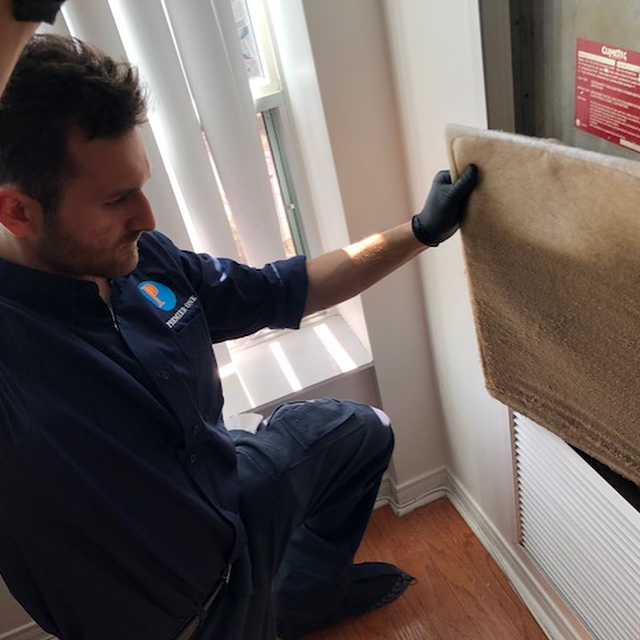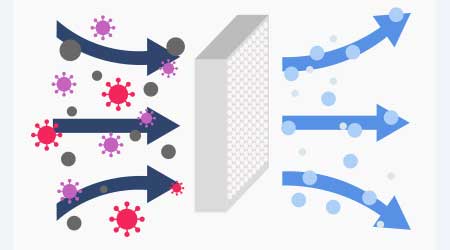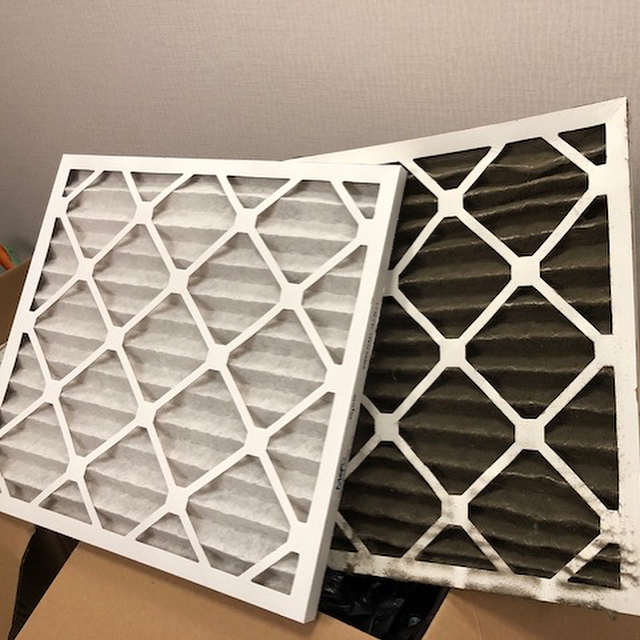When shopping for HVAC filters, it’s essential to weigh both the cost and the caliber of the product. High-quality HVAC filters offer advantages like dust removal and allergy prevention, but often at a steeper price.
This discussion will delve into the differences between budget-friendly and high-end air filters, outlining the pros and cons to help you make a well-rounded choice.
The Importance of HVAC Filters and Their Advantages
Air filters serve several vital functions. They’re instrumental in capturing various airborne irritants, such as dust, pollen, pet dander, and smoke particles, improving the air quality in your space.
By trapping these contaminants, air filters play a significant role in lowering the risk of respiratory issues and other health complications that arise from subpar indoor air quality (IAQ). Additionally, they aid in enhancing airflow and reducing the strain on heating/cooling systems, leading to decreased energy expenditures over time.
With a high-quality air filter, you can expect not only cleaner air within your home but also reduced heating and cooling expenses and an HVAC system that operates more effectively.
Comparing Low-Cost and High-End HVAC Filters
The disparity between less expensive and pricier air filters is noticeable in several aspects. Consider the following contrasts:
Durability and Longevity of HVAC Filters
Low-cost filters typically have a shorter lifespan than their higher-priced counterparts, necessitating more frequent replacements. These affordable options are often constructed from materials like cardboard and paper, which, while cost-effective, don’t hold up as well. They might capture only half the amount of dust or pollen before they’re obstructed and need replacing—doubling the maintenance efforts and costs annually. Additionally, these filters may deteriorate quicker when consistently exposed to heat and humidity.
High-Quality Materials in Pricier HVAC Filters
More expensive air filters are crafted from superior materials compared to their cheaper counterparts. Often utilizing fiberglass, these filters offer a porous composition that is more adept at capturing a wider range of dust and pollen particles. Fiberglass is also more resistant to moisture and less prone to tearing than materials such as cardboard or paper. While the initial manufacturing costs are higher, the durability of fiberglass filters means they require less frequent replacement and maintenance over time.
Greater Filtering Surface Area in Premium HVAC Filters
Air filters with a higher Minimum Efficiency Reporting Value (MERV) rating boast a greater surface area for trapping particulate matter. Investing in a slightly more costly, high-quality air filter can enhance the air quality in your home by more effectively removing dust and other pollutants, in addition to mitigating allergens. In contrast, a less expensive air filter may have fewer pleats, thereby reducing its ability to capture airborne contaminants.
Limited Effectiveness of Budget-Friendly HVAC Filters
One significant drawback of budget-friendly air filters is their reduced efficacy in purifying the air of dust and other pollutants. This can be particularly concerning in homes with high occupancy, pets, or individuals with respiratory conditions. The decreased efficiency means these filters need to be replaced more frequently, which can inadvertently lead to increased expenses over time.
Choosing the Appropriate HVAC Filters
The decision on which air filter to purchase really boils down to your individual needs. If your priority is saving money upfront and you don’t mind replacing filters more frequently, then a less expensive option might be suitable for you. These filters might not capture as many contaminants, but they can be adequate for short-term use.
On the other hand, if your budget allows and you’re seeking a filter that can remove a high volume of contaminants — particularly important for those with allergies or asthma — then investing in a pricier filter with a higher MERV rating could be beneficial. Keep in mind, however, that filters with higher MERV ratings can strain your HVAC system if it’s not designed to handle them. In some cases, they can lead to issues like frozen air filters in the summer or triggered high-heat limits in winter. To avoid this, you may need to upgrade to larger filters, though this might not always be feasible for residential setups.
For those who desire longevity and allergen reduction from their filters, it’s worth considering more expensive options. These often incorporate durable materials such as metal or plastic, which can stand up to frequent use. But if you’re leaning towards economy and plan to replace your filters regularly, a basic, lower-quality filter may be all you need.
Ultimately, the key is to assess your specific needs. Take the time to research and find an air filter that aligns with those requirements. Remember, it’s not just about finding the cheapest or the most costly option; it’s about choosing a filter that will serve you effectively. Regardless of the initial cost, the right filter for your circumstances can lead to long-term savings and a healthier indoor environment.
Conclusion
Navigating the myriad of options for home air filters can be a challenge, especially when trying to understand the rationale behind their price points. This guide has aimed to demystify the distinctions between low-cost and high-end filters, enabling you to make an informed decision that aligns with both your individual needs and your financial plan. With this knowledge, you should feel confident in choosing the right filter for your home.
For those who require professional installation, repair, or ongoing maintenance for various HVAC systems, Premier One is at your service. We provide detailed maintenance agreements designed to keep your system in peak condition. Contact us at (905) 209-1105 to learn more, or book a service online today.





